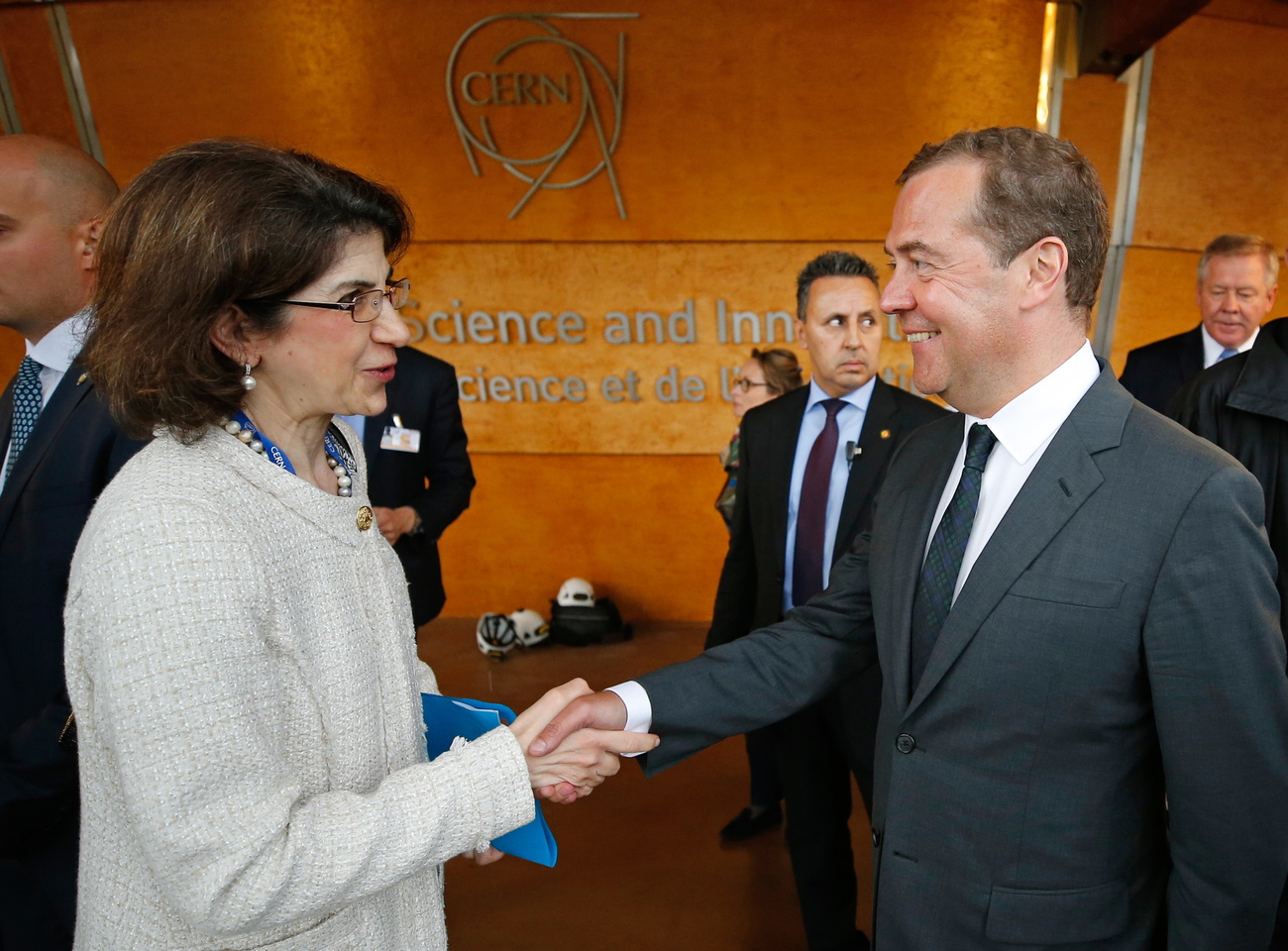CERN has not completely cut ties with Russia

Last winter, CERN, the European Organization for Nuclear Research, decided to end its cooperation with Russia. But one delicate exception remains.
Russia’s war against Ukraine has caused many scientific bridges to collapse. This is also evident at the CERN research centre in Geneva, which specialises in particle physics.
The contract between CERN and Belarus expired at the end of June. Cooperation with Russia will end at the end of November. Over 400 researchers are affected by this. They are already only allowed to carry out limited research at CERN.
Door not fully shut
Last December’s decision to definitively exclude Russia and Belarus was political – and to some extent controversial. The decision was made by the CERN Council, in which the member countries have two representatives each.

More
Removing Russia from CERN ‘helps Putin’, scientists fear
However, the same body has now decided at the end of June to extend cooperation with a research institute in Russia after all. This is the Joint Institute for Nuclear Research, or JINR for short. It is based in Dubna, not far from Moscow.
Criticism of the collaboration
Why is CERN making an exception here? Spokesperson Arnaud Marsollier says that the institute is internationally organised – it is similar to CERN. Several countries are conducting research together in Russia. These are countries from Central Asia and the Caucasus region, but also North Korea.
However, the institute is a Russian-dominated project, says Ukrainian delegation leader Borys Grynyov, who represents Ukraine on the CERN Council. Moreover, research there is not exclusively for peaceful purposes. At least some of the research in Dubna has so-called dual-use applications, meaning it can also be used for military purposes, says Grynyov.
Putin’s interests
The Ukrainian delegate at CERN refers to Russian President Vladimir Putin’s visit to the institute in Dubna in mid-June. The explosive aspect of this visit was that the Deputy Chair of the Russian Security Council, Dmitry Medvedev, was also present. According to the press release, the topic of discussion was the development of important technologies for Russia.
Afterwards, Putin praised the Dubna research centre. The joint efforts of science and industry are also crucial for the country’s security, he said. Exactly which technologies are to be developed remains a secret. The institute itself does not respond to enquiries.
CERN spokesperson Marsollier only responded to the accusations in general terms. CERN only conducts peaceful research – this also applies to all international collaborations. In addition, CERN had already severely restricted its relationship with the institute in Russia after the start of the war and relations now are symbolic.
Hungary opposes the exclusion
However, the two-thirds majority required to exclude JINR from CERN was not achieved in the CERN Council at the end of June. Many countries abstained. Research by SRF shows that the only country that clearly opposed the exclusion was Hungary – a country that is fundamentally critical of Western sanctions policy.
László Lengyel, the deputy head of the Hungarian Department of Education and Research, is a member of the CERN Council. When asked, he says it was not a political decision. It was simply a matter of continuing a well-functioning research collaboration.
CERN has not burned all its bridges with Russia – despite the war. The collaboration with JINR continues on a low level.
Adapted from German by DeepL/ac

In compliance with the JTI standards
More: SWI swissinfo.ch certified by the Journalism Trust Initiative

You can find an overview of ongoing debates with our journalists here . Please join us!
If you want to start a conversation about a topic raised in this article or want to report factual errors, email us at english@swissinfo.ch.